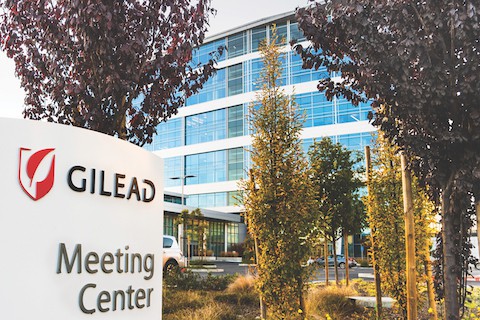
A study from the World Health Organization (WHO) has found that Gilead’s antiviral med remdesivir has little effect on COVID-19 mortality.
The results come from WHO’s Solidarity Therapeutics trial, which had been testing a number of potential COVID-19 therapeutics – in particular the effectiveness of repurposed drugs for the treatment of COVID-19.
The interim results, published on the pre-print server medRxiv, showed that remdesivir, along with hydroxychloroquine, lopinavir/ritonavir and interferon regimens appeared to have ‘little or no effect’ on 28-day mortality in hospitalised COVID-19 patients. According to the WHO, these results are conclusive.
However, the drug’s developer Gilead has hit back at the organisation’s findings, calling the results ‘inconsistent’.
“The emerging (WHO) data appears inconsistent, with more robust evidence from multiple randomised, controlled studies published in peer-reviewed journals validating the clinical benefit of remdesivir,” Gilead told Reuters.
Remdesivir has been touted as a potential treatment for COVID-19 since the early days of the pandemic, with the drug recently being administered to US president Donald Trump after he tested positive for the virus earlier this month.
In July, Gilead said that the drug reduced the risk of death by 62% in severely-ill COVID-19 patients. This figure came from a comparative analysis from the company’s phase 3 SIMPLE-Severe trial and a real-world retrospective cohort of patients with severe COVID-19.
In addition to the 62% mortality reduction, Gilead said remdesivir demonstrated an improvement in clinical recovery when compared with standard-of-care.
Gilead also revealed analyses from its compassionate use programme, which demonstrated that 83% of paediatric patients and 92% of pregnant and postpartum women with a broad spectrum of disease severity recovered by day 28 of treatment.
However, at the time some analysts took issue with the validity of the data, given that the source of the data was not from a randomised, placebo-controlled clinical trial, but rather compares clinical trial data to non-clinical trial data.
Following the results from the Solidarity Therapeutics trial, WHO’s chief scientist Soumya Swaminathan said that the organisation will review alternative emerging treatment options, such as monoclonal antibodies, immunomodulators and newer antiviral medication.
A number of companies are developing antibodies for COVID-19, with the most notable probably being Regeneron’s antibody cocktail REGN-COV2.
Regeneron also recently announced that it has applied for an emergency use authorisation from the US Food and Drug Administration for REGN-COV2 for the treatment of non-hospitalised COVID-19 patients.




